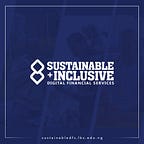6 Things You Probably Didn’t Know About Financial Inclusion in Nigeria
A snapshot of the state of financial inclusion in Africa’s largest economy
Africa has been home to some of the world’s oldest civilisations and today, has some of the fastest growing nations in the world, one of which is Nigeria.
Currently, Nigeria is home to about one-fifth of Sub-Saharan Africa’s population. Of the estimated one billion people that live in sub-Saharan Africa, about 180 million of them are in Nigeria. And the country doesn’t seem to be slowing down. By the year 2050, researchers estimate that Nigeria’s population will reach a whopping 440 million outpacing the United States by about 30 million people (World Bank figures).
The Central Bank of Nigeria (CBN), in a bid to increase financial inclusion in the country introduced the National Financial Inclusion Strategy (NFIS) in 2012. The summary of the NFIS document is to have 80% financial inclusion by 2020.
In order to appreciate just how important and significantly difficult this goal is, here are 6 facts about financial inclusion in Nigeria you probably did not know.
1. Almost half of Nigeria’s adult population are financially excluded
Nigeria’s financial inclusion figures right now stand at about 50%. Put in another way, about 47 million Nigerians (individuals above 18 years of age) are financially excluded. That is, they have no account with any formal financial institution, hence no access to formal savings, insurance, pension and credit facilities.
2. More than half of Nigeria’s population live in rural areas
As at 2016, about 51% of Nigeria’s population reside in rural areas according to the World Bank. This, in part, is what has led to the high number of financially excluded adults in the country. It also emphasises the underdevelopment of our rural locations.
Opening of bank branches is a strategic financial decision which would only be made if it serves the purpose of the institution. Most times, the profits gotten from remote areas are not enough to offset the cost of setting up and running a bank branch in these areas thereby complicating the access conundrum even more.
3. Nigeria has relatively low mobile money penetration
Mobile money has not been so successful in Nigeria. With its population of 180 million people, mobile penetration at around 80% and a large unbanked population, the Nigerian market seems to be tailor-made for mobile money. Nevertheless, mobile money penetration is still very low.
As at December 2016, there were approximately 5.5 million mobile money customers in Nigeria (according to the CBN). However, EFinA’s 2016 Access to Finance Survey results indicate these users of mobile money are mostly banked Nigerians; defeating the adoption of mobile as a channel for financial inclusion.
4. There are currently 21 licensed Mobile Money Operators in Nigeria
Within the space of six years (2011–2017), mobile money operators (MMOs) have flooded the Nigerian market. From 2011 when the first mobile money license was given to Paga, to date, the CBN which regulates mobile money operations in Nigeria has granted licenses to 21 MMOs which comprise 6 bank operators and 15 non-bank operators.
This makes Nigeria the country with the highest number of MMOs in the world.
5. Telecommunications companies are not licensed to operate as mobile money operators
Similar to Bangladesh, Nigeria currently has a regulatory model that excludes the direct participation of telecom operators as mobile money operators.
According to the CBN’s guidelines for mobile money operators, there are two models of mobile money services:
i. The Bank-led Model: This model recognises a bank (or consortium of banks) rendering mobile money services either alone or in partnership with other approved organisations.
ii. The Non-Bank led Model: This model recognises duly licensed corporate organizations delivering mobile money services. It however, specifically stipulates that the Lead Initiator must be a duly licensed corporate organization other than a deposit money bank (DMB) or a Telecommunications provider (Telco).
This is ironic because telcos have been at the forefront of mobile money operations in other markets within and outside Africa. It is also rather puzzling because telcos have a higher penetration due to mobile phone penetration and an extensive airtime distribution network via agents.
6. Agent Network
To further drive financial inclusion, the CBN introduced the agent banking guidelines in 2013. According to the guideline, financial institutions (FIs) and MMOs can appoint third parties as agents to provide financial services on their behalf to members of the public. The CBN’s regulatory framework also includes a super-agent framework, responsible for monitoring and supervising the activities of agents, including the volume and value of transactions for each type of service they offer.
As at 2015, it was reported that there were about 80,000 mobile money agents in Nigeria conducting transactions worth $1.5 million dollars monthly, according to the CBN. In August 2016, the first Super Agent licenses were granted to two companies — Innovectives Limited and Interswitch Financial Inclusion Services Limited.
…………………………………………………..
Sustainable and Inclusive Digital Financial Services is an initiative of the Lagos Business School, currently funded by the Bill & Melinda Gates Foundation. Follow us on Facebook, Twitter and LinkedIn for news, updates, research and in-depth analysis on the state of financial inclusion, digital finance and mobile money in Nigeria and Sub Saharan Africa.
